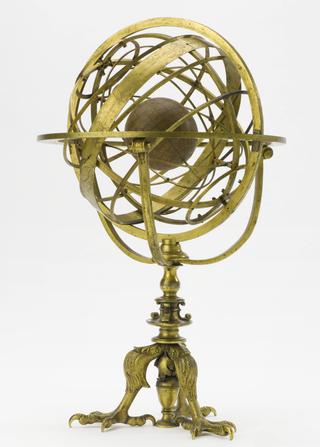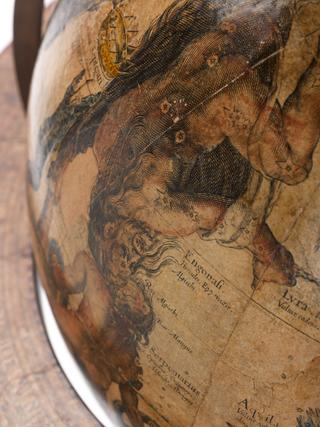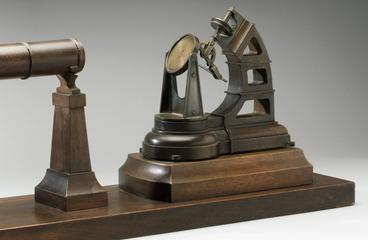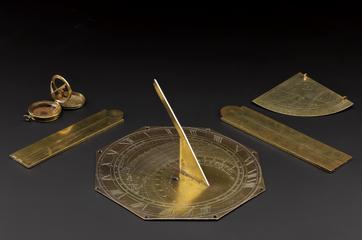
European celestial globe
- Made:
- 1878
















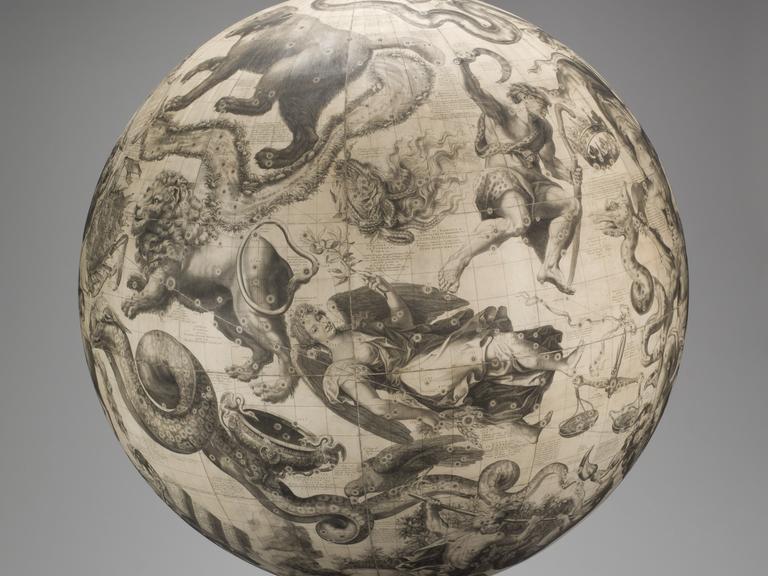
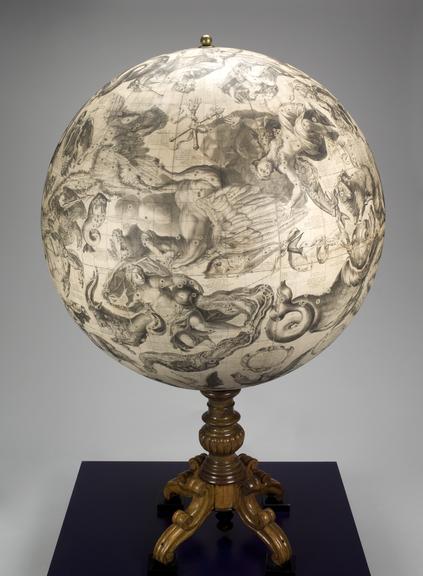




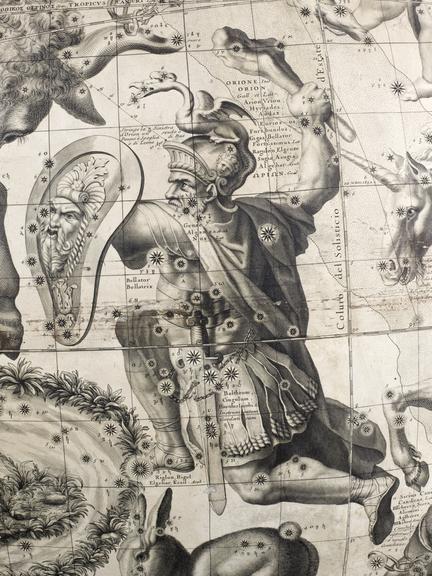
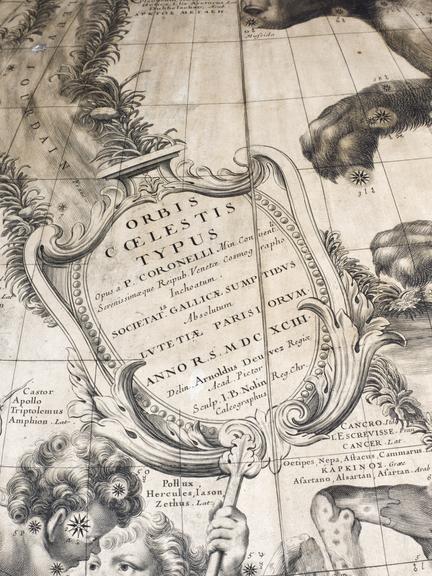
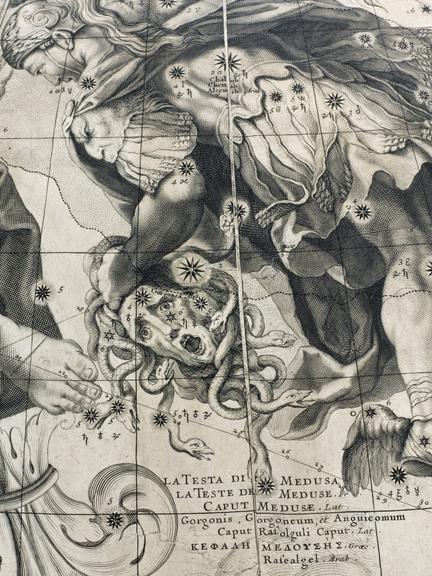


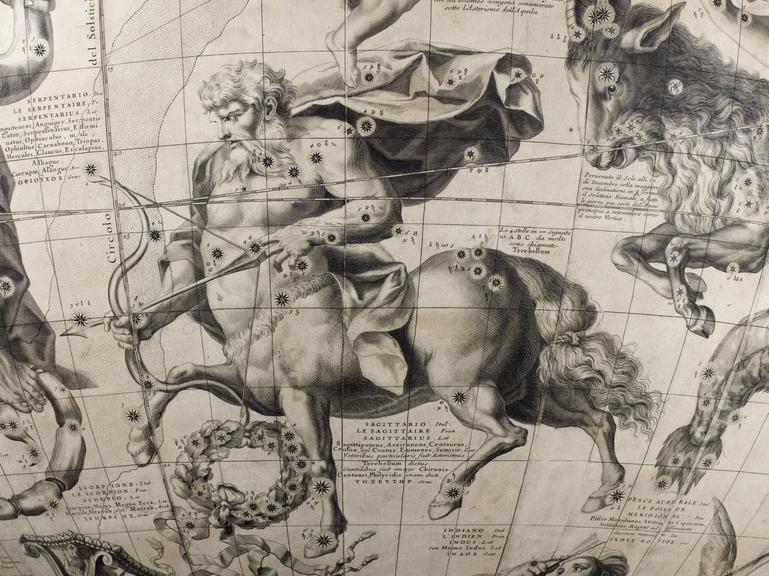

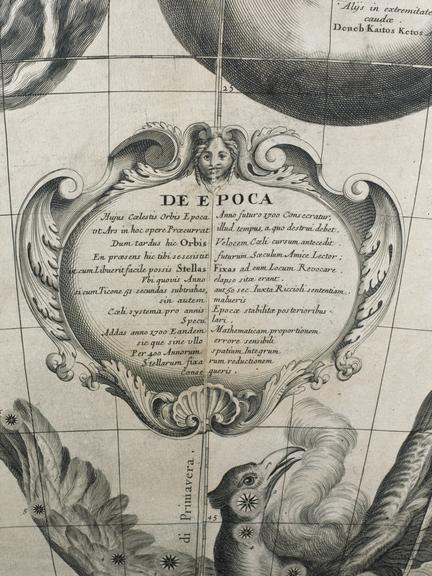
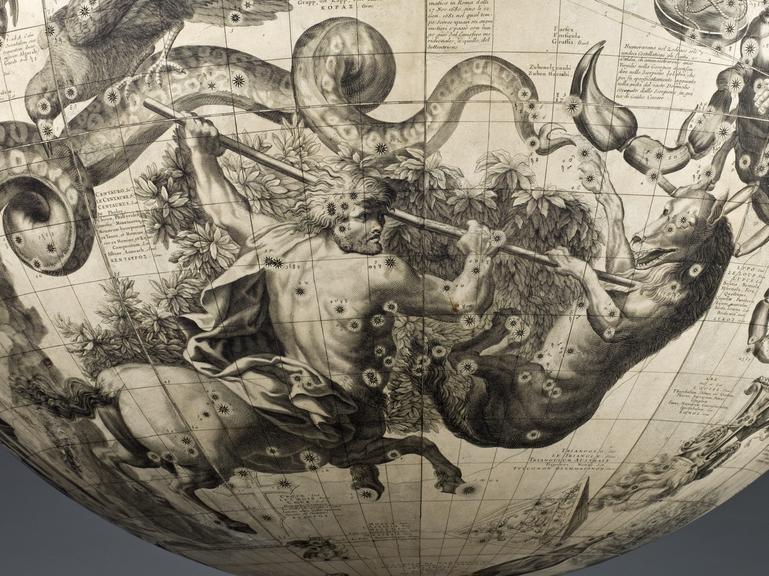
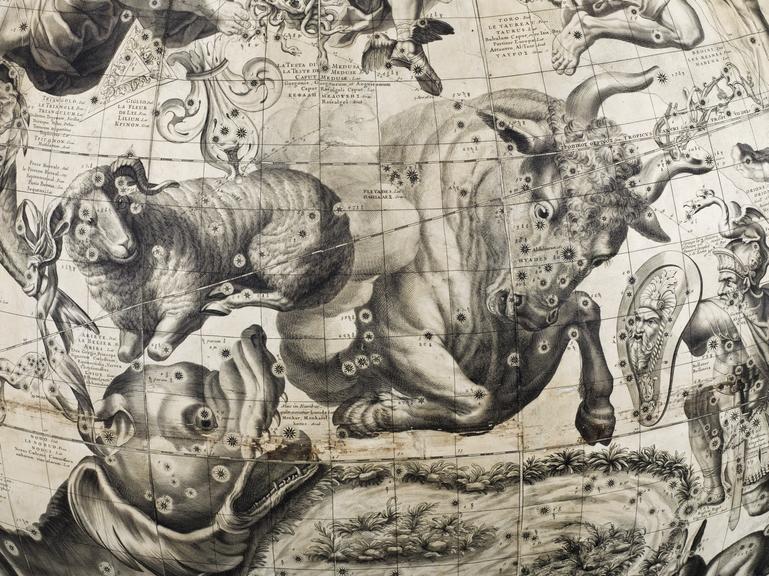
Celestial globe (42-inch diameter) on wooden pillar stand by Charles Delagrave, Paris, France, 1878. Thought to be a 19th century copy of a globe by Vincenzo Coronelli, a Venetian map maker and geographer. Cartouche is signed as being delineated by Arnold Deuvez and engraved by J. B. Nolin, 1693. Globe gores may be 18th or 19th century copies.
Dating from 1878, this large printed celestial globe with wooden stand was assembled in Paris, France by Charles Delagrave. The globe is centred on the constellation of Ophiuchus (the serpent bearer). The celestial globe is a three-dimensional model of the heavens on which the stars are plotted on the outside of a sphere. Originating in the Ancient World it was probably inspired by the discovery that the Earth was round. The globe could be used to teach and demonstrate various astronomical principles. Until recently most celestial globes were ornate with decorative figures obscuring the stars.
This globe features beautiful constellation figures such as Taurus the Bull and Aries the Ram. The star patterns are the reverse of what we see in the night sky, because many celestial globes depict the sky as if you were outside a sphere, looking down.
The illustrations are based on the work of 17th-century Venetian map-maker Vincenzo Coronelli. His globes became a lavish status symbol for royalty and wealthy noblemen across Europe.
Details
- Category:
- Astronomy
- Object Number:
- 1878-10
- Materials:
- oak (wood), wood (unidentified), paper (fibre product), plaster and brass (copper, zinc alloy)
- Measurements:
-
overall: 1850 mm 1070 mm, 50kg
- type:
- celestial globe
- credit:
- Purchased
